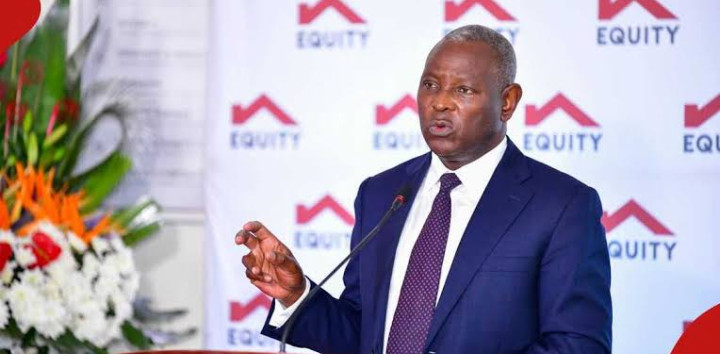The Directorate of Criminal Investigations (DCI) Banking Fraud Unit is currently probing the suspicious transfer of Sh1.4 billion from an internal account within Equity Bank.
This substantial sum, which was initially housed in the bank’s Internal Salaries Remittance General Ledger, was allegedly siphoned and credited into various other bank accounts.
John Karima Wainaina, a key suspect in the alleged scheme, was arraigned before Milimani Chief Magistrate Susan Shitubi.
The DCI, represented by Inspector Chrispinus Shibanda, requested a 14-day detention for Wainaina, arguing the need for sufficient time to complete the intricate investigation.
The authorities claim that the Sh1,499,465,831.29 transferred from Equity Bank was moved to non-Equity accounts through an elaborate fraud scheme.
Wainaina was apprehended on November 9, 2024, at Jomo Kenyatta International Airport as he attempted to return to Kenya from China.
Allegedly, he had fled to China upon learning of the DCI’s investigation, suggesting a potential attempt to evade accountability.
During the court session, Inspector Shibanda detailed that Equity Bank had informed the DCI of numerous fraudulent transactions that occurred between June 1, 2024, and July 31, 2024.
These transactions involved debits from the bank’s internal Salaries Remittance General Ledger Account, which were then credited to various accounts not affiliated with Equity Bank.
Moreover, false transaction narrations were allegedly created within the bank’s system, serving as a method to obscure the origins and flow of these funds.
According to Shibanda, preliminary findings identified accounts associated with Wainaina, including those held by proxy companies, as primary beneficiaries of the stolen funds.
Inspector Shibanda portrayed Wainaina as a member of a sophisticated, organized crime group, with well-defined roles for each participant in the scheme.
He alleged that Wainaina not only infiltrated the bank’s system but also recruited bank staff and natural and artificial proxy account holders to aid in laundering the misappropriated funds.
This recruitment strategy purportedly enabled Wainaina to penetrate the bank’s internal processes and facilitate the unlawful transfer and concealment of funds.
The court heard further details of Wainaina’s suspected role as the key recruiter for individuals and companies whose accounts were used to launder the stolen funds.
Inspector Shibanda stated that intelligence gathered by the DCI points to Wainaina’s role in meeting recruits at various locations to discuss, plan, and execute the transfer of funds, often converting them into hard cash.
Shibanda underscored the importance of gathering CCTV footage from locations where Wainaina allegedly met with his recruits, as well as other documentary and electronic evidence, to substantiate the claims against him.
Given the extensive nature of the investigation, Inspector Shibanda expressed concern that Wainaina’s release could hinder the DCI’s progress in collecting crucial evidence, including witness statements and electronic records.
Additionally, Shibanda cited Wainaina as a potential flight risk, referencing his previous attempt to leave Kenya.
He argued that releasing Wainaina prematurely could result in witness tampering and the obstruction of justice, as Wainaina’s network of associates, who are reportedly in regular contact with him, might be influenced.
Inspector Shibanda concluded by highlighting the complexity of the case and the need for a comprehensive investigation to identify and apprehend other individuals involved in the scheme.





















Add Comment